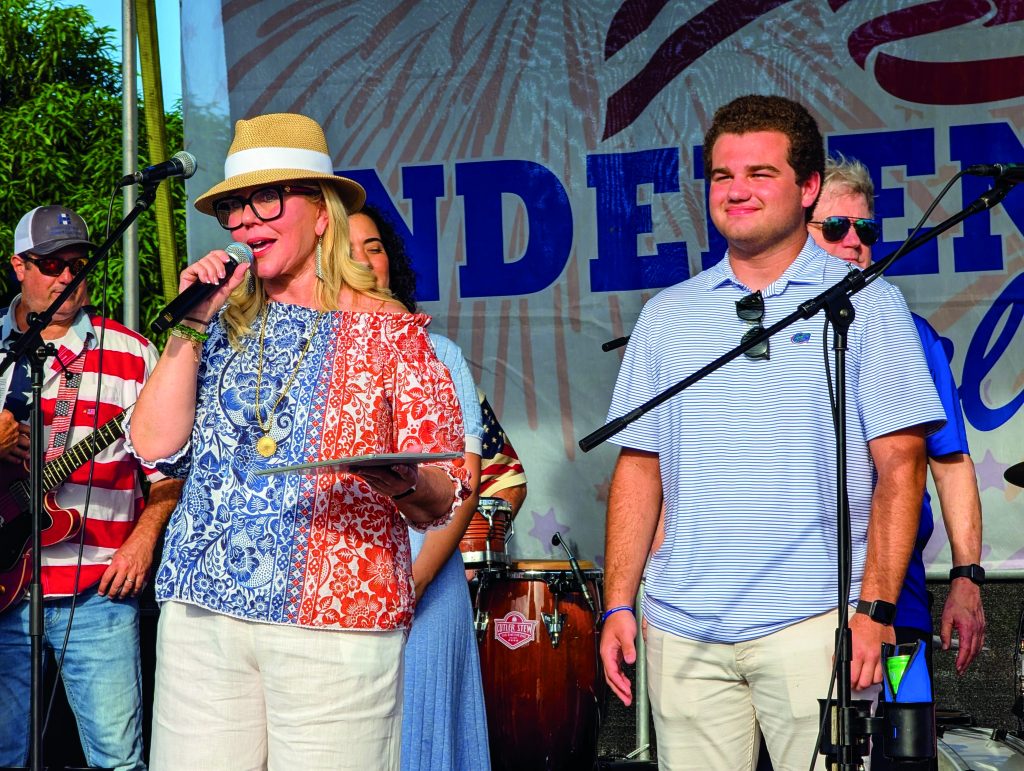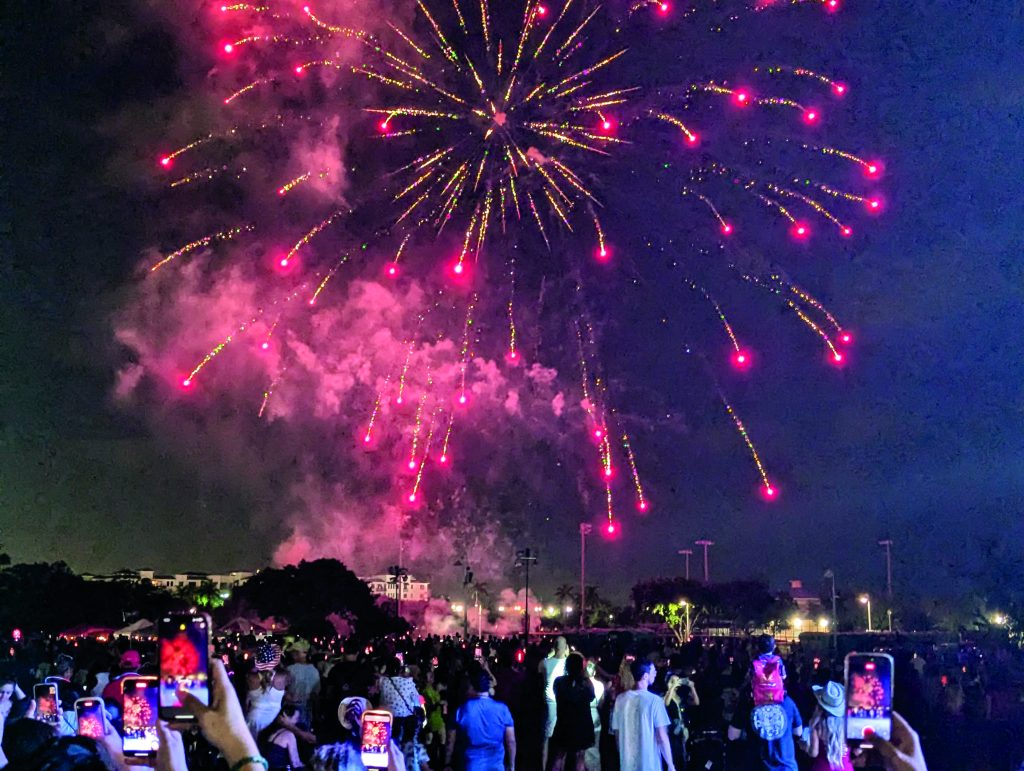Pot-hole politics, partisan labels: Ideologies can complicate the local voting process
By Valeria Hernandez
Coral Reef Senior High School/Montage
When Palmetto Bay Mayor Karyn Cunningham first ran for office in 2018, she said some residents pointed to her party affiliation as a reason not to vote for her.
“It shouldn’t matter,” said Cunningham, who was then a registered Republican.
Municipal elections in Miami-Dade County are nonpartisan, she said. Candidates are not listed on the ballot by party affiliation nor are they allowed to mention their party on campaign issues.
“You know, the issues that I would be talking about would be, in a large part, nonpartisan issues,” said Cunningham, who was re-elected to a second term in 2022.



Photos by Boriana Treadwell, University of Miami
Recent studies show that residents don’t separate their political affiliations on the national level from their local vote. National news, some political analysts say, creates a combative atmosphere where everyday residents lose sight of the day-to-day issues such as potholes, street signs, lighting and traffic.
Some local voters would rather look at political labels, Cunningham said.
“I think when you’re running for office, oftentimes there is some political polarization, which is one of the reasons why I changed my party affiliation,” said Cunningham, who switched from Republican to No Party Affiliation in 2022.
The Pew Research Center, which researches political polarization, finds that Congressional Democrats and Republicans in 2022 were farther apart ideologically than at any time in the past 50 years. Another 2022 Pew study shows that 72% of Republicans regard Democrats as more immoral, and 63% of Democrats say the same about Republicans.
The research center found similar patterns when it came to other negative viewpoints on the opposing party such as dishonesty, close-mindedness, unintelligence, and laziness.
“It wasn’t always the case that being a Republican or a Democrat then was highly correlated with a particular ideology, or a particular set of policy viewpoint,” said Gregory Koger, a political science professor at the University of Miami. “People began to start thinking of their political parties like social affiliation or something that they inherited from their parents. Citizens have established a mindset of ‘I am’ instead of ‘I believe in’, falling into what now seems more like a rigid social standing rather than a political opinion.”
High school students Haylee Hanson and Brooke Barnett, both students at Miami Palmetto Senior High School in Pinecrest, are involved in the school’s Youth Committee Involvement Task Force and see the importance of understanding and participating on the local level.
“I have noticed that people around me react more when it comes to local issues since they directly impact our community and way of life here in Palmetto Bay,” said Hanson, 17, a senior and task force co-chair. “People become more passionate when they can physically see local issues and become more motivated to solving and getting involved in them.”
Adds Barnett, 16, a junior and task force vice secretary: “We have the opportunity to go to the council meetings with the mayor and everybody, which is good because the youth get representation.”